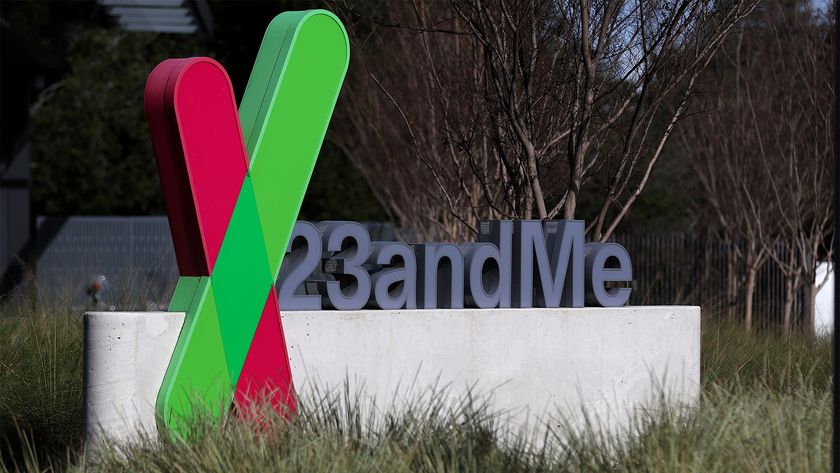Adobe faces lawsuit over "complex and challenging cancellation process" for customers
Adobe is accused of deceiving consumers about early termination fees and making it hard to cancel subscriptions

The US government is suing Adobe, alleging that the software company deceived consumers by hiding the early termination fee for its most popular subscription plan and making it difficult for consumers to cancel their subscriptions.
A federal court complaint filed by the Department of Justice (DoJ) claims that Adobe pushed consumers toward an “annual paid monthly” subscription without adequately disclosing that cancelling the plan in the first year could cost hundreds of dollars.
According to the DoJ the lawsuit alleges that the defendants imposed a hidden early termination fee on millions of online subscribers and that Adobe also forced subscribers to navigate a “complex and challenging cancellation process” designed to deter them from cancelling subscriptions they no longer wanted.
David Wadhwani, Adobe’s president of Digital Media Business, and Maninder Sawhney, Adobe's Vice President of Digital Go to Market & Sales are also listed as defendants. The complaint charges that Adobe’s practices violate the Restore Online Shoppers’ Confidence Act (ROSCA): the case will be decided by the court.
Adobe’s general counsel and chief trust officer Dana Rao denied the FTC’s claims, adding that the firm will contest the charges in court.
“Subscription services are convenient, flexible and cost effective to allow users to choose the plan that best fits their needs, timeline and budget. Our priority is to always ensure our customers have a positive experience,” Rao said. “We are transparent with the terms and conditions of our subscription agreements and have a simple cancellation process. We will refute the FTC’s claims in court.”
After 2012, Adobe shifted principally to a subscription model, requiring consumers to pay for access to the company’s popular software on a recurring basis. Subscriptions account for most of the company’s revenue, the FTC said.
Get the ITPro. daily newsletter
Sign up today and you will receive a free copy of our Focus Report 2025 - the leading guidance on AI, cybersecurity and other IT challenges as per 700+ senior executives
“Adobe trapped customers into year-long subscriptions through hidden early termination fees and numerous cancellation hurdles,” said Samuel Levine, Director of the FTC’s Bureau of Consumer Protection.
“Americans are tired of companies hiding the ball during subscription signup and then putting up roadblocks when they try to cancel.”
According to a complaint filed in the US District Court for the Northern District of California, the defendants systematically violated ROSCA by using fine print and inconspicuous hyperlinks to hide important information about Adobe’s subscription plans, including about a “hefty” early termination fee that customers may be charged when they cancel their subscriptions.
The complaint alleges that for years, Adobe has profited from this hidden fee, “misleading consumers about the true costs of a subscription and ambushing them with the fee when they try to cancel, wielding the fee as a powerful retention tool,” according to the DoJ’s statement.

The complaint alleges that Adobe also violated ROSCA by failing to provide consumers with a simple mechanism to cancel their recurring, online subscriptions. Instead, “Adobe allegedly protects its subscription revenues by thwarting subscribers’ attempts to cancel, subjecting them to a convoluted and inefficient cancellation process filled with unnecessary steps, delays, unsolicited offers and warnings,” the DoJ said.
According to the complaint, when consumers purchase a subscription through the company’s website, Adobe pushes consumers to its “annual paid monthly” subscription plan, pre-selecting it as a default.
The complaint said that Adobe prominently shows the plan’s monthly cost during enrolment, “but it buries” the early termination fee and its amount, which is 50% of the remaining monthly payments when a consumer cancels in their first year, according to the FTC.
Adobe’s early termination fee disclosures are buried on the company’s website in small print or require consumers to hover over small icons to find the disclosures, the complaint said.
In addition to failing to disclose the early termination fee to consumers when they subscribe, the FTC complaint also alleges that Adobe uses the early termination fee to “ambush” consumers to deter them from cancelling their subscriptions.
The complaint also alleges that Adobe’s cancellation processes are designed to make cancellation difficult for consumers. When consumers have attempted to cancel their subscription on the company’s website, they have been forced to navigate numerous pages in order to cancel.
“When consumers reach out to Adobe’s customer service to cancel, they encounter resistance and delay from Adobe representatives. Consumers also experience other obstacles, such as dropped calls and chats, and multiple transfers. Some consumers who thought they had successfully cancelled their subscription reported that the company continued to charge them until discovering the charges on their credit card statements,” the FTC said.
Steve Ranger is an award-winning reporter and editor who writes about technology and business. Previously he was the editorial director at ZDNET and the editor of silicon.com.














